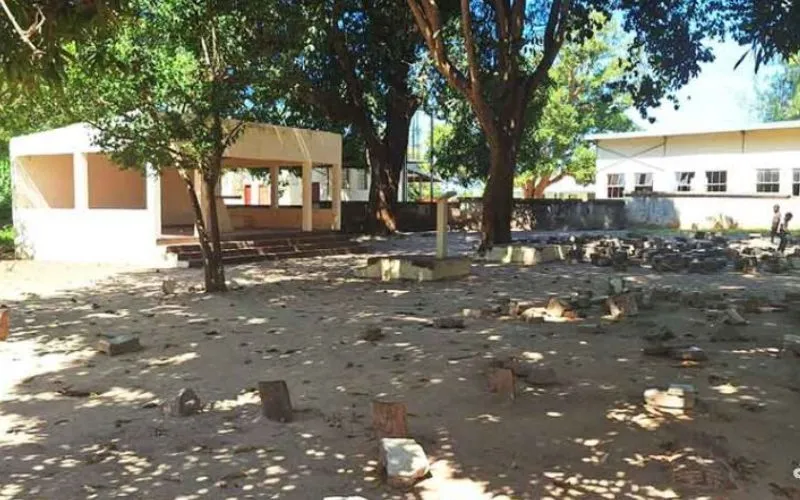Maputo, 28 June, 2024 / 8:18 pm (ACI Africa).
Parishioners of Immaculate Conception Parish of the Catholic Diocese of Pemba in Mozambique’s port town of Mocímboa da Praia, who fled when their town was attacked in 2020, and their Church razed down, are slowly coming back and gathering to pray at the ruins of their church.
According to the Pontifical and charity foundation, Aid to the Church in Need (ACN) International, the Parishioners are undeterred by the absence of Sacraments. the Clergy, and women and men Religious.
“When terrorists overran the town of Mocímboa da Praia, most of the population, including Christians, fled. Now, the Christians who returned have no access to the sacraments, and no clergy or religious to assist them, but continue to gather close to the ruins of the local church to pray together every Sunday,” ACN says in a Thursday, June 27 report.
According to ACN, everyone, including Christians and Clergy fled when members of the Islamist group Al Shabaab landed on the town that is located in the embattled Mozambican province of Cabo Delgado, causing massive destruction.
In the June 27 report, ACN notes that Mocímboa da Praia has been occupied by terrorists more than once since the attack in 2020, and that the signs of destruction can be seen everywhere, but especially in the church premises.








